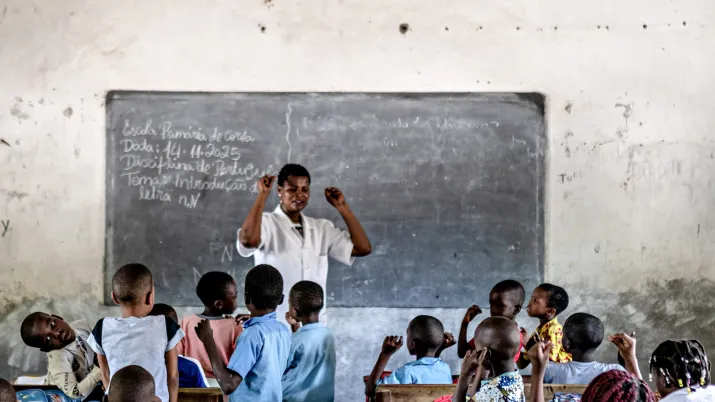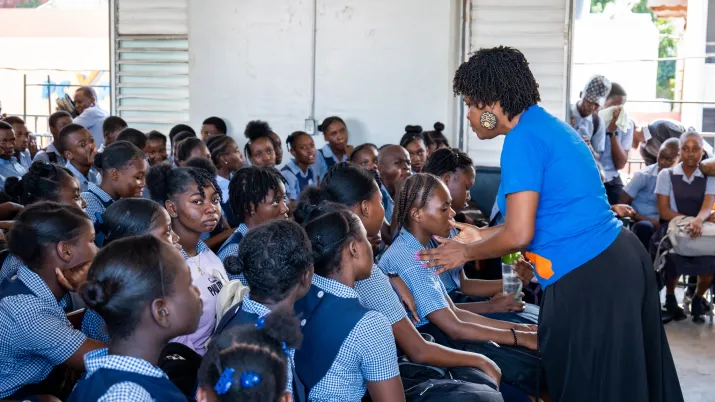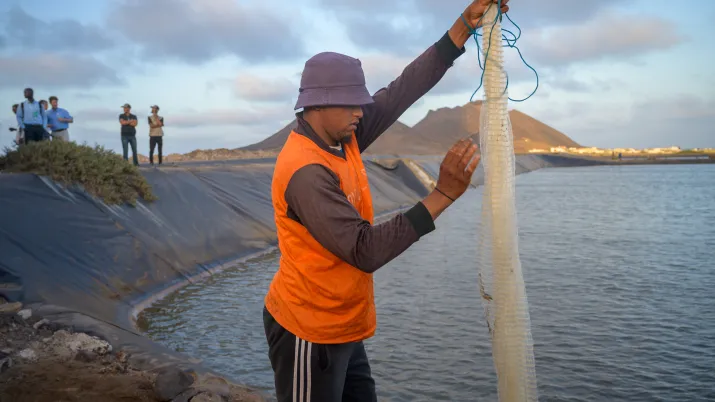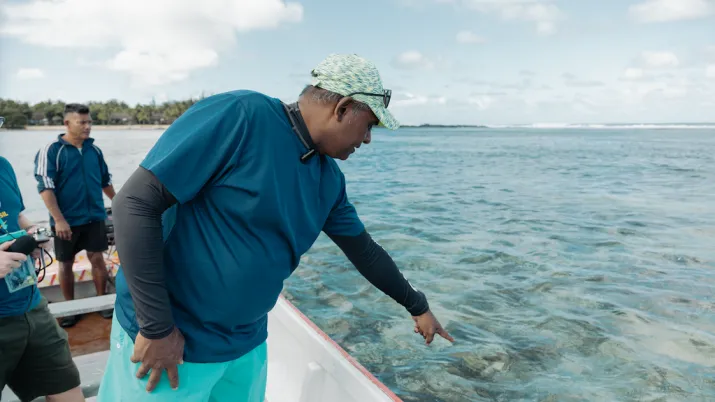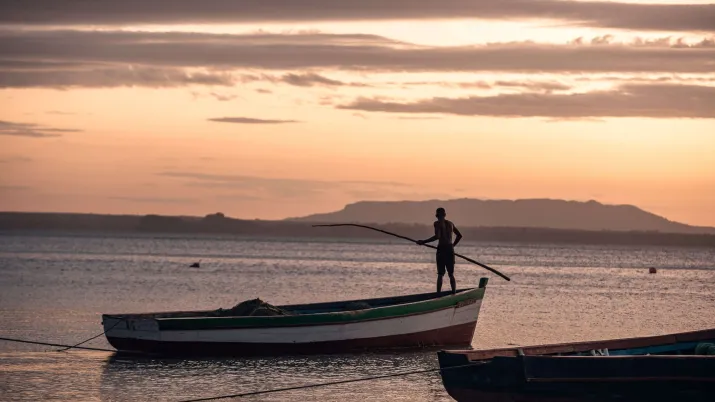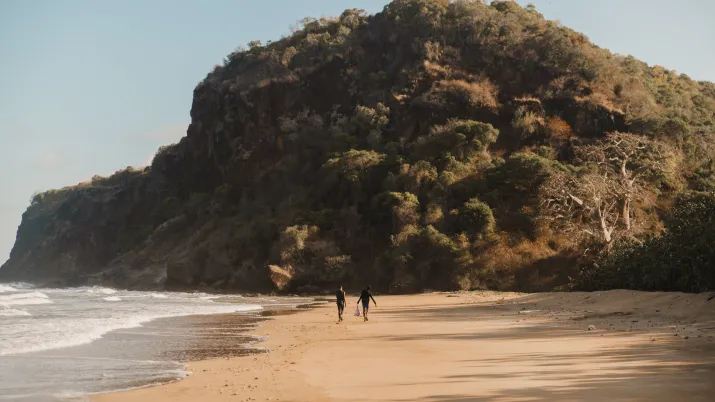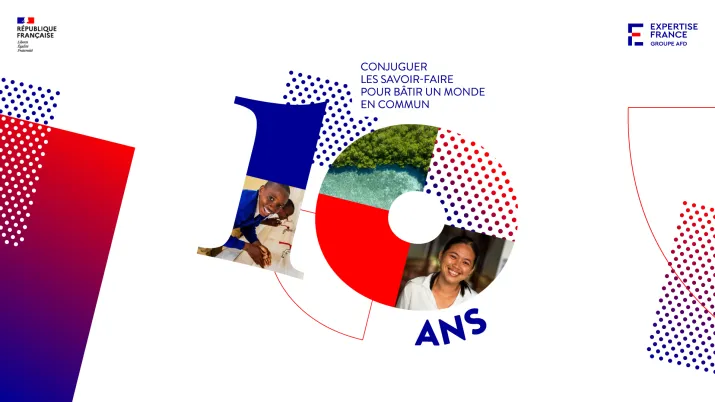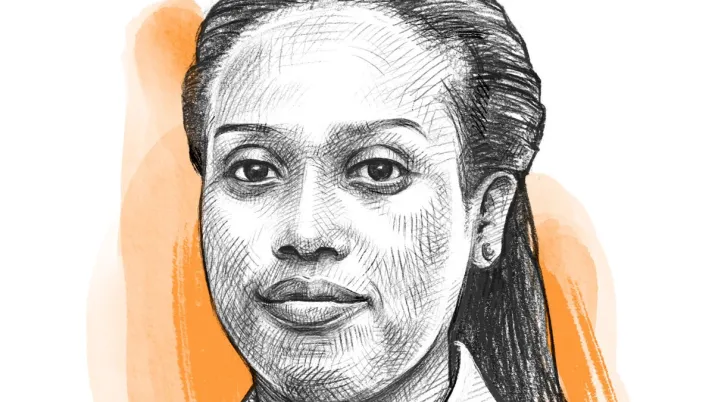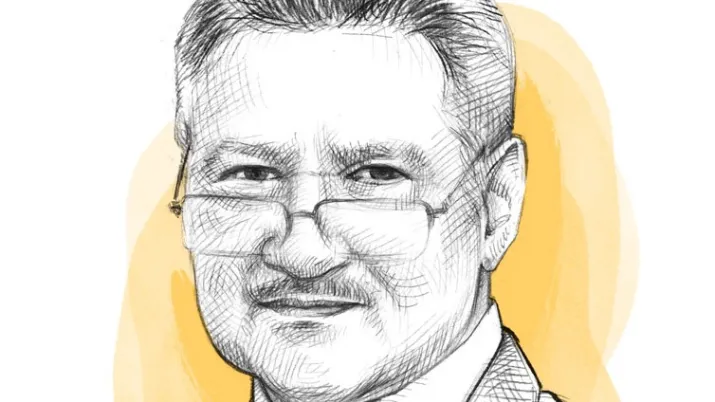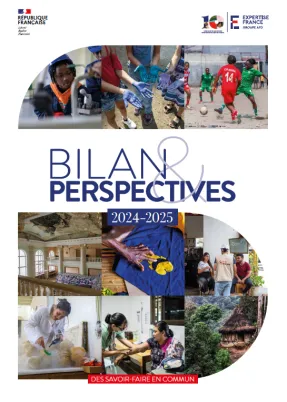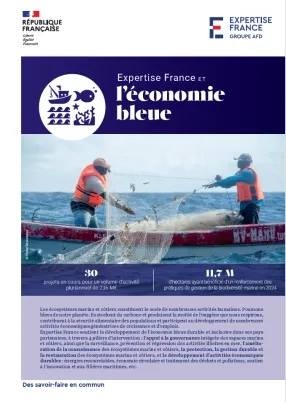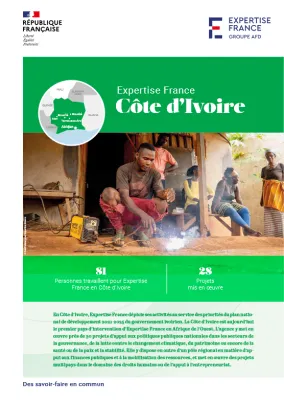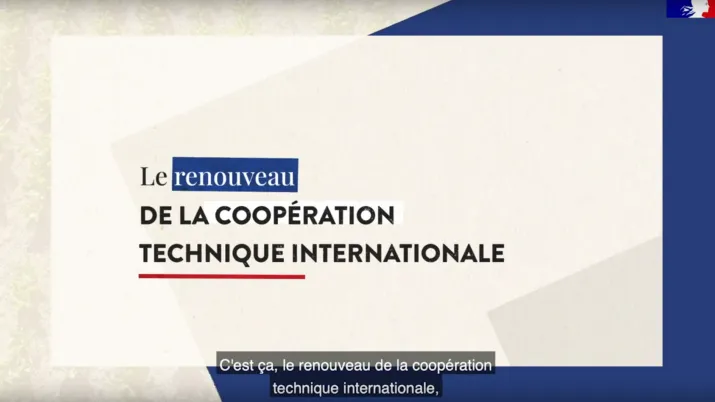Nos actualités
Agence française de coopération technique, Expertise France mène des projets de coopération internationale dans près de 150 pays à travers le monde. Découvrez les actualités du secteur de la coopération technique internationale ainsi que les dernières actualités de notre agence.
À la une
Une enseignante engagée pour protéger les enfants de sa communauté des catastrophes
Publié le 26 janvier 2026
Zoom sur... l'eau
Focus sur les 10 ans d'Expertise France
10 ans d’Expertise France - 10 propositions pour le futur de la coopération technique
Pour célébrer ses 10 ans, Expertise France organise le mercredi 12 février 2025 une cérémonie hybride, entre présentiel à Paris et diffusion en direct sur internet, placée sous le Haut Patronage de Mo...
Publié le 4 février 2025

